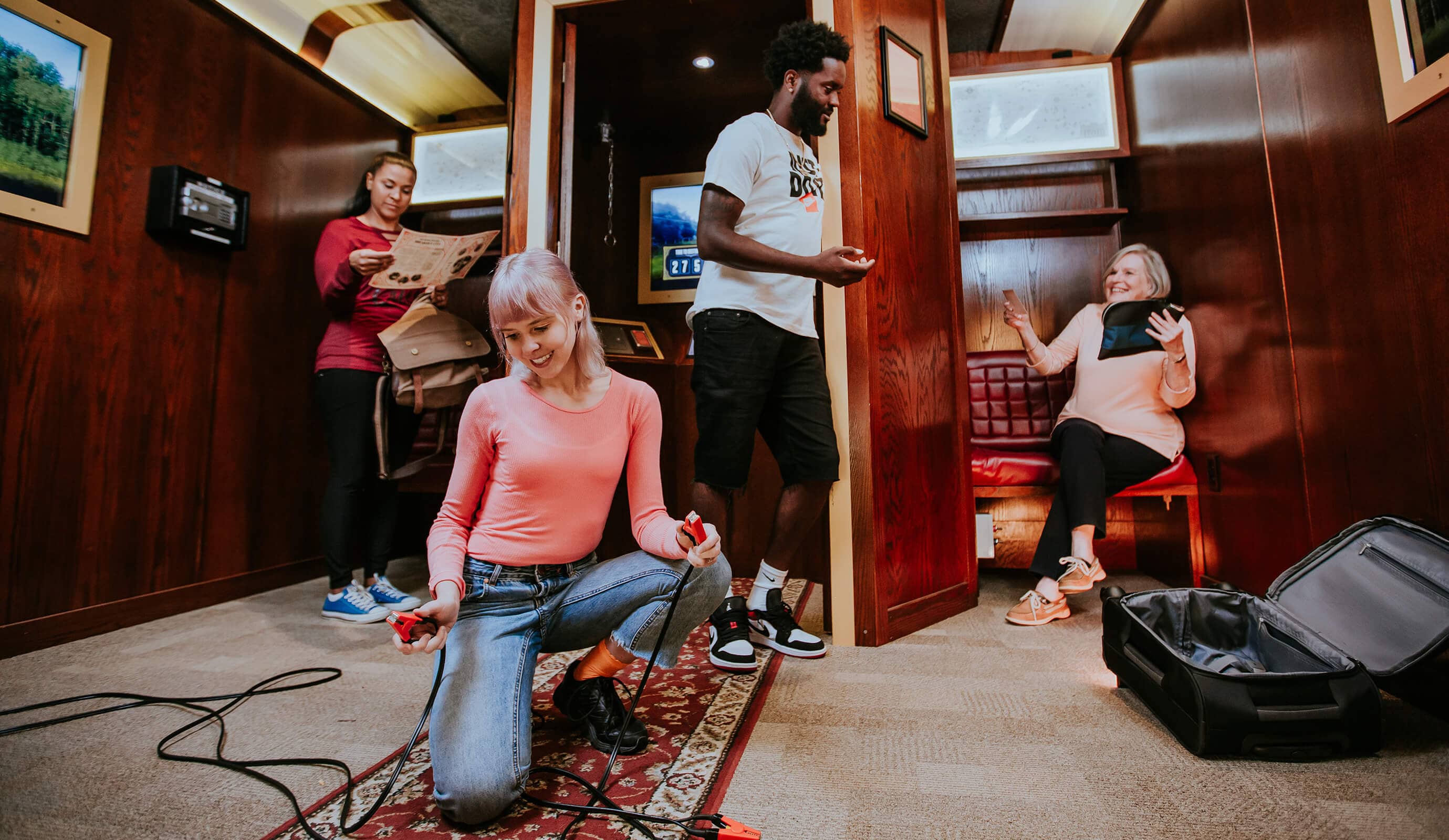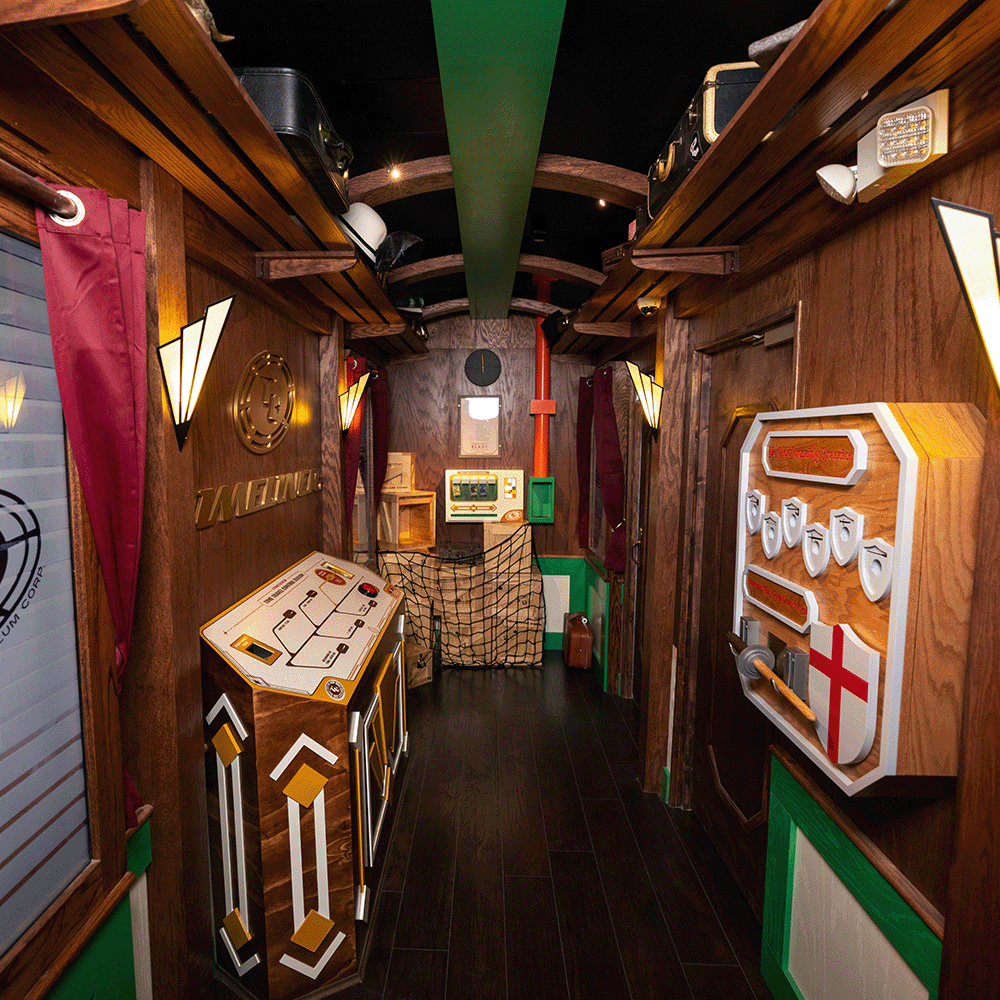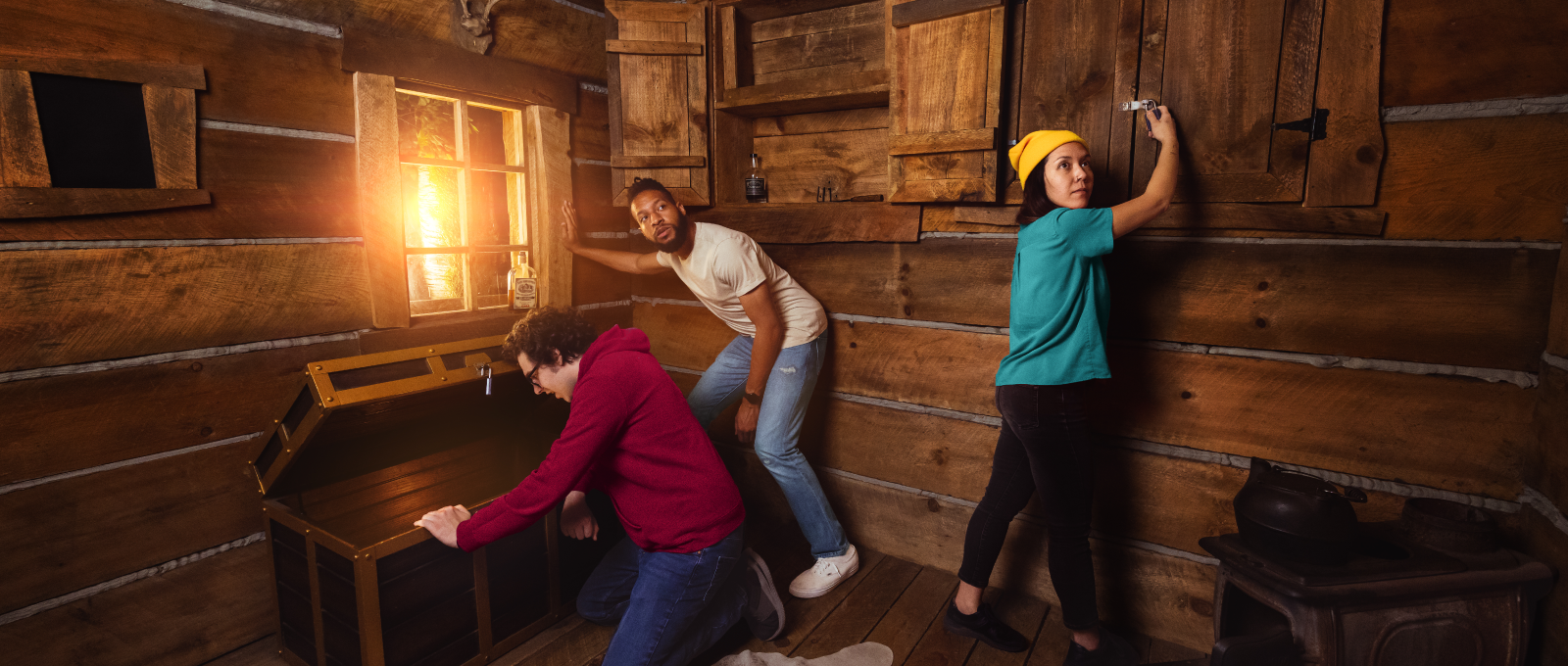Explore the Best Escape Room in Minneapolis-- Schedule Your Experience
Explore the Best Escape Room in Minneapolis-- Schedule Your Experience
Blog Article
Team Strategies: Exactly How to Team up Successfully in a Getaway Room
Browsing the complexities of a retreat area requires even more than plain enthusiasm; it needs a well-coordinated technique grounded in clear interaction, strategic duty assignments, and adept time monitoring. Teams should proactively pay attention to each participant's insights, designate roles that align with private strengths, and preserve routine check-ins to ensure focus and avoid redundancy. By cultivating an atmosphere that values cohesion and adaptability, groups can significantly increase their performance and success rates. The nuances of these methods can change the experience, yet how exactly can they be carried out to maximize the capacity for success?
Establish Clear Interaction

To assist in clear communication, it is necessary to designate a central factor of get in touch with for info circulation. This duty entails summing up searchings for and suggested strategies to ensure everyone stays on the very same web page. In addition, adopting an organized approach to discussions can stop chaotic exchanges. Brief, focused updates from each group participant can maintain the team notified without frustrating them with info - best escape room.

Assign Functions Strategically
While clear interaction sets the structure for efficient teamwork, assigning functions purposefully guarantees that each staff member's toughness are used effectively. In a retreat room situation, the time-sensitive and complex nature of obstacles requires a well-organized approach to task delegation. By identifying and leveraging private expertises, teams can maximize their analytical abilities and improve overall performance.
Someone with a keen eye for detail might excel in finding surprise things, while a logical thinker could be better fit to fixing challenges. This role commonly calls for solid organizational and interpersonal skills.
Second, guarantee that functions are versatile and adaptable. As brand-new difficulties emerge, the group needs to have the ability to pivot, reapportioning jobs as called for. This adaptability assists maintain energy and protects against traffic jams that might occur due to inflexible role tasks.
Eventually, a critical method to role project not just takes full advantage of the staminas of each staff member but additionally fosters a cohesive environment, driving the group towards web an effective getaway.
Use Diverse Skills
Recognizing and utilizing the diverse skills within your team can significantly raise your performance in an escape room. Each staff member brings unique strengths to the table, and efficiently leveraging these capabilities can speed up analytical and boost total efficiency. For instance, an employee with strong logical skills might stand out at analyzing complicated codes or patterns, while one more with keen empirical abilities might rapidly spot covert hints that may overlook.
Reliable interaction is essential to utilizing these varied skills. Motivate team members to articulate their insights and concepts without delay, guaranteeing that all prospective remedies are thought about. This comprehensive approach cultivates a dynamic environment visit where creative thinking and essential reasoning can thrive. In addition, assigning jobs that straighten with each participant's strengths can stop traffic jams and make certain that progress is constant.
Additionally, diversity in abilities commonly converts to diversity in thinking designs, which is invaluable in a getaway area setting. While some obstacles may need logical thinking and precision, others may gain from imaginative and lateral reasoning. By identifying and leveraging this diversity, teams can deal with a wider series of obstacles better, thereby enhancing their possibilities of an effective retreat.
Manage Time Efficiently

First, allocate initial mins for a quick survey of the area. Determine noticeable challenges and split tasks based upon team members' strengths, making sure that no one is idle. Establish internal time checkpoints to review progress periodically; as an example, aim to have my latest blog post half the puzzles addressed by the mid-point of the game. This technique can assist keep the group focused and stop time from escaping unnoticed.
In addition, avoid passage vision. If a problem is taking as well long, rotate staff member or go on to another difficulty, returning later on with fresh perspectives. Communication is critical-- keep everybody updated on resolved puzzles and staying jobs to stay clear of redundant initiatives.
Last but not least, use any tips or ideas sparingly but strategically - best escape room. Knowing when to request assistance can save valuable time. By adhering to these time administration concepts, groups can substantially improve their opportunities of an effective and satisfying escape space experience
Debrief and Mirror
Reflection is a crucial facet of group growth and renovation in the context of escape spaces. As soon as the obstacle is finished, whether successfully or otherwise, it is crucial for the group to participate in an organized debriefing session. This process enables staff member to analyze their performance, recognize toughness, and identify areas for renovation.
Begin the debrief by reviewing what went well. Highlight particular instances of reliable communication, analytical, and cooperation. Identifying these favorable habits reinforces them and urges their repeating in future obstacles.
Next, address the obstacles came across. Talk about moments of confusion, miscommunication, or inefficient methods. Encourage an open and useful discussion where group participants can share their perspectives without fear of objection. This promotes a culture of constant renovation and knowing.
Verdict
In final thought, effective partnership in a getaway space is predicated upon clear interaction, critical function assignments, the efficient utilization of diverse abilities, and proficient time administration. By producing a natural and adaptive group atmosphere, the likelihood of successfully solving puzzles and accomplishing the purpose of leaving the area is dramatically improved.
Report this page